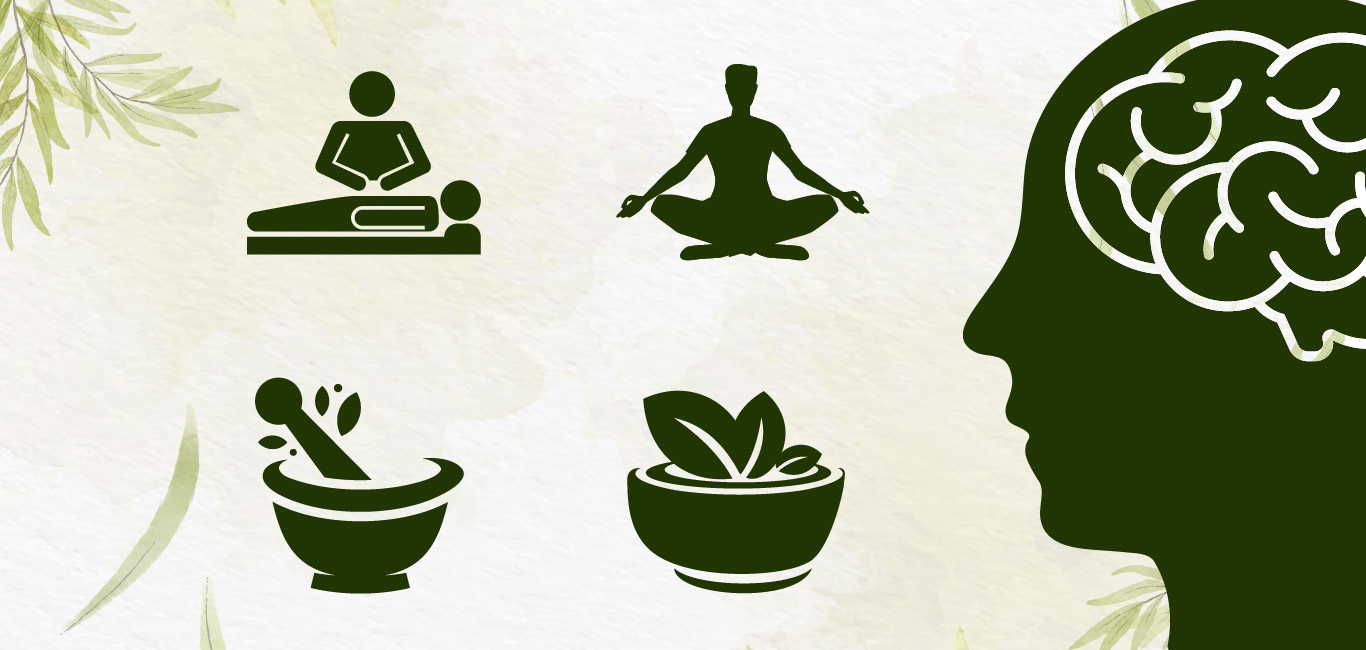
“It was hard at first to process the diagnosis,” says Ramakrishna N, a 54-year-old former security guard from Bengaluru who used to suffer from debilitating tiredness, bodily tremors and unexplainable fatigue until about six years ago. “But then, this is life — you look at ways to beat a problem.”
For Ramakrishna, having a cup of coffee always carried the risk of spilling it in those days. “I had to leave my job and look for something manageable that would help me put food on the table,” he says.
His worst fears were confirmed when he was diagnosed with Parkinson’s disease (PD) — a progressive nervous system disorder that affects movement, causing tremors, stiffness and other symptoms such as nausea and giddiness.
“A relative guided me to ayurvedic treatment, and I decided to give it a shot,” says Ramakrishna.
His treatment at a Bengaluru-based Government Ayurvedic Medical College entailed a two-month-long process of oral medication, followed by some in-hospitalisation therapies like body massage, enema (which includes introducing medicines through the rectal route) and nasal medications.
“I am much stronger now — both emotionally and mentally. My sleep cycle has improved, and I have gained much of my strength,” says Ramakrishna, who now runs a small provision store in Bengaluru. He adds that his only regret is not trying to accept Ayurveda earlier, coming to it only after six long years of struggling with Parkinson’s.
But Ramakrishna’s case is not unique.
“On an average, I see around 10 Parkinson’s cases monthly and most of them walk in with progressive symptoms of PD,” says Dr Anantha Desai, consultant and professor at Government Ayurvedic Medical College in Bengaluru. He believes that ayurveda is an effective add-on therapy that can be used to reduce the side effects of conventional Parkinson’s medication.
An add-on therapy
Current allopathic treatments for Parkinson’s focus on increasing dopamine levels by administering its precursor drug L-dopa which gets converted into dopamine in the brain. Depending on the condition, the medication doses can shoot up — which might end up causing complications including dyskinesia and dystonia – involuntary and repetitive movements of facial muscles, arms, legs and torso.
This pushes the individual towards compromising the medical management of their condition by not wanting to increase the dosage of L-dopa.
Ayurvedic practitioners, on the other hand, see the culprit as impaired vayu or vata (the air component in the body). Vayu controls bodily movements and cognition (the process of learning and memory). Since PD symptoms usually relate to movement and cognitive changes, its treatment mainly focuses on balancing vata and providing enough nourishment to the body (santarpana) with lifestyle modifications.
“Ayurveda offers therapies and some medicinal plants like winter cherry and velvet bean which have been accepted by many researchers throughout the globe,” says Dr Ashrafuddeen I., principal and professor at PN Panicker Souhruda Ayurvedic Medical College, Kasaragod, Kerala.
The side effects caused due to the long-term use of L-dopa has prompted researchers to look for natural alternatives to the drug. Some studies seem to have found the velvet bean plant (Mucuna pruriens) to be a good ‘herbal source’ of L-dopa, which has been used by ayurvedic practitioners to treat several neurological diseases including Parkinson’s.
A study done by researchers at the Reta Lila Weston Institute of Neurological Studies in London found that mucuna seed powder had a faster onset of action compared to conventional Parkinson’s medication. They also said that the effect of the naturally occurring compound lasted much longer than the chemically synthesised version in the brain.
Purification strategies
Alongside the use of herbs Ayurveda looks at purificatory therapies that focus on cleansing the gastrointestinal tract and supportive therapies like massages with medicated oil followed by a steam bath.
Purificatory measures help in cleansing the channels, eliminating the toxins, and improving the digestion of an individual. The role of enema is more important since the culprit vata’s normal place is in the colon and enema is the best line of treatment for any health condition caused by it.
Only symptomatic relief
“Although there can’t be a permanent cure to Parkinson’s — as it is one of the degenerative diseases — Ayurveda’s therapies such as enema, oil-dripping therapy and other supportive therapies along with some effective oral medications are promising in order to give relief and check the progression [of symptoms],” says Dr S.K. Tiwari, distinguished professor, Banaras Hindu University (BHU), Varanasi.
Dr Ashrafuddeen agrees, “Although the treatment is beneficial, it can only arrest the progression of symptoms and can relieve the severity of the symptoms.”
What studies say
But does this century-old treatment method really work? Several studies point to its efficacy.
A study conducted by researchers from Mumbai’s KGMP Ayurveda Mahavidyalaya has shown the efficacy of enema and nasal instillation of medication in the management of Parkinson’s disease. Ten people divided into two groups received nasal instillation of medication and enema separately, using the same medication. Both the groups showed an improvement in symptoms.
Importance of nasal and rectal route
Any medication consumed orally must undergo digestion. As a result, it reaches the target site only after crossing the blood barrier. But medication given through the nasal and rectal routes can reach their target sites and produce action in a short duration.
The advantage of an enema is that the medications given through the rectal route can get directly absorbed since it remains unexposed to the digestion process. In addition, Parkinson’s is normally associated with constipation, which can be managed by intake of fibre-intensive foods, vegetables and also isabgol (psyllium).
This has been backed by research carried out by Delhi’s Chaudhary Brahm Prakash Ayurveda Charak Sansthan. Dr Divya Kajaria, the researcher who worked exclusively on the role of nasal medications for managing parkinsonism, says in her case study that the nasal route is the best way to administer medications for diseases of the head, neck and brain since the medications directly produce action by escaping the blood-brain barrier.

















